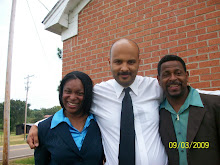Some time on Facebook I ago I made some meager contribution to a discussion on Ayn Rand's fiction writing style. As such, any discussion on her philosophy per se was of secondary relevance to the main topic. It did, however, get me wondering about how she would have felt about Kurt Godel's Incompleteness Theorems. It seemed that logic was so integral to her philosophy of objectivism, seeing as she had her uberman John Galt go on about during a 100+ page monologue in "Atlas Shrugged".
I'm not kidding about how long that monologue is.Go and try to read that book if you think I'm pulling your leg.
Now, seeing as how meticulously Rand was in building a logical framework for her ideas and how interested she seemed to be in philosophy in general (and logic and reason specifically), it was natural for me to wonder if what she would have made of Betrand Russell, most notably his attempt to reduce all of mathematics to logic. And with Kurt Godel's Incompleteness Theorem that pretty much proved such a feat was mathematically impossible. Given that Rand lived until 1982, at which point Russell and Godel's work had been around for nearly 50 years; it seems likely to me that she would have heard something about them.
(Please note that Godel's Incompleteness Theorems seems generally about the limitation of formal logical systems sophisticated enough to cover and accept ordinary arithmetic. It doesn't seem to deal with formal systems that do not deal with ordinary arithmetic and it certainly doesn't seem to pertain to informal logic, the kind that most of us use in the real world anyway).
I haven't yet found much in the way of direct quotes from Rand herself (and to be honest, I'm not sure if I really WANT to read too much more of her after wading through "Atlas Shrugged"). However, it seems that at least one student of Rand have been doing some of the heavy mental lifting as far as that question is concern. In David Ross's "Foundation Study Guide: Philosophy of Mathematics", the author discusses and differentiate a formalist's approach to mathematical logic (which is concerned with the algebraic forms of logical systems without concern for their meanings) and the objectivist's approach to logic (which is concerned with meaning). I'm only just beginning to look into kind of thing myself but I'm beginning to suspect that my search for answers will eventually lead me to "The Unreasonable Effectiveness of Mathematics in the Natural Sciences" by Eugene Wigner which while obviously based on a scientist's perception, an objectivist's prerequisite stated in Ross's article, would most likely given Ms. Rand one enormously endless hissy fit with the phrase "unreasonable effectiveness" alone.
Yes, I need to get laid. I know. I know.

